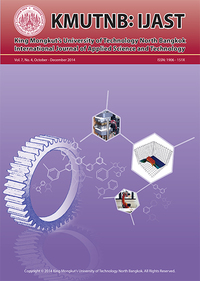Advanced Measurement, Characterization and Simulation of Thermoplastic Composite Induction Welding
Main Article Content
Abstract
Induction welding is a highly versatile thermoplastic composite (TPC) and hybrid material (metal to composite) fusion bonding process which uses electromagnetic phenomena to generate contact-free heating of the joining partners. Two highly influential sets of parameters in the process are the ‘actual’ applied coil current amplitude and frequency along with the temperature and frequency dependent electrical conductivity behavior of the joining materials. Both sets of data are not easily measurable and may change dynamically during the process. One of these issues can be addressed from an electrical engineering point of view, which focusses on the induction heating equipment itself and accurate measurement of the electrical behavior of the induction heating circuit. Magnetoresistive sensors especially designed for high-frequency current measurement can be used to measure the coil current and its corresponding waveform for any welding setup. The data recorded by the sensor board, together with Fourier Transform analysis techniques, provides accurate values for the coil current and frequency, which can then be used for process and equipment design simulations assisting in the development of suitable control systems and overall process optimization.


